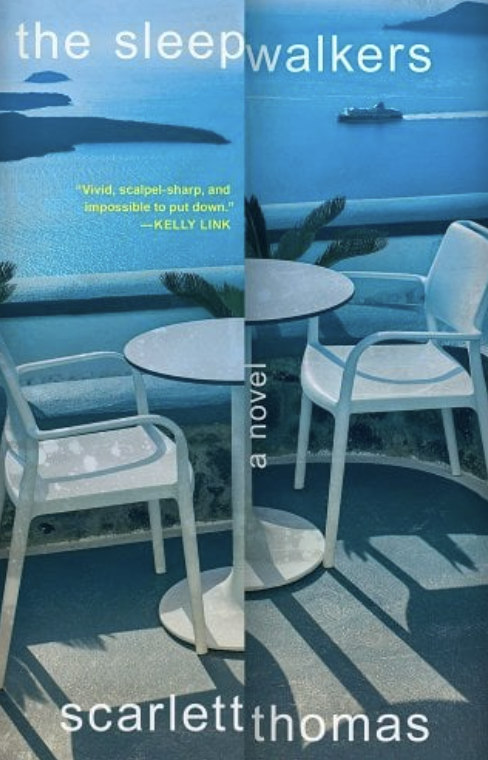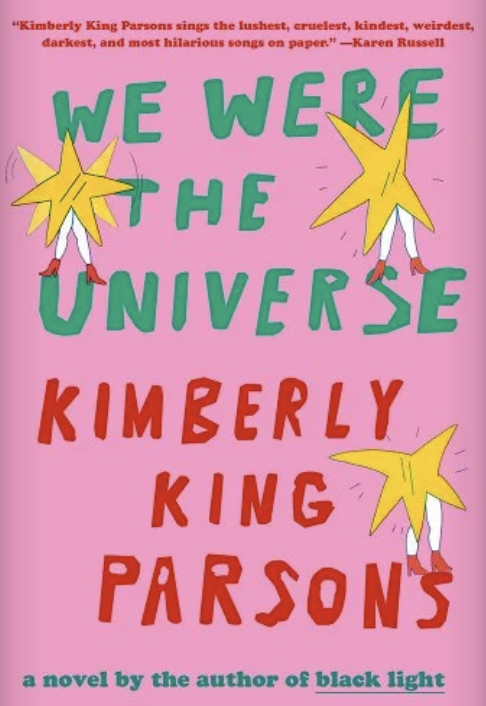In the opening scene of season two of The White Lotus, the camera perches above the Sicilian coastline. Rows of blue and white umbrellas are placed exactly the same distance apart. We see Daphne, a lithe blonde woman in a printed one-piece bathing suit. An Aperol spritz sits on her side table. A Louis Vuitton purse rests on the chair next to her. Daphne is beautiful, apparently wealthy, seemingly privileged in countless other ways, and happy.
Article continues below
“We had the best time,” Daphne gushes to the guests next to her that have just arrived. “Italy’s just so romantic. Oh, you’re gonna die.” Then, she wanders into the water for one last swim, and comes across a dead body.
The story begins one week earlier, and eventually circles back to this same moment with Daphne on the beach. By now, we know that she and her devilishly handsome, slippery husband love each other, but they’ve also hurt each other so many times that Daphne could keep up her coping routine of dissociating and retaliating—or she might just snap.
There is a rich tradition of storytelling through which we get a look inside the lives of beautiful people on beautiful adventures, only to find that such beauty can be a mirage. It can even tip a person into madness. Both iterations of Mike White’s The White Lotus, Emma Cline’s novel The Guest, and Bong Joon Ho’s film Parasite are recent popular examples of a canon that includes Patricia Highsmith’s The Talented Mr. Ripley, F. Scott Fitzgerald’s The Great Gatsby, and Stephen King’s The Shining.
This year, we have three entries into this sub-genre of literature: Rachel Lyon’s Fruit of the Dead, Scarlett Thomas’s The Sleepwalkers, and Kimberly King Parsons’s We Were the Universe. All of them feature women losing something core to their identities—childhood, success, independence, sisterhood—and literally trying to escape that loss. They all land in beautiful places—a private island, a Greek honeymoon, a Montana river town—only to find their losses festering in strange and dangerous ways.
Add these books to your tote bag this summer. Or, maybe just read them from the safety of your couch.
*
Fruit of the Dead, by Rachel Lyon
“I have to tell my mom something,” says Cory, the 18-year-old camp counselor and protagonist of Rachel Lyon’s Fruit of the Dead. “I can’t just disappear.” She’s considering a spontaneous job offer from the dad of her favorite camper: One month nannying for his kids on his private island. “Can’t you?” he replies with a smile before handing Cory an NDA. She’s 18, after all. She can make her own decisions.
Fruit of the Dead is adapted from the Greek myth in which Hades kidnaps Persephone, the daughter of Demeter, and holds her captive in the underworld. In Lyon’s version, Cory—who has been rejected by every college that she applied to, and has no plans for the future—agrees to the job offer despite her mother’s voice in her head urging her to run.
Cory’s employer is a billionaire who made his fortune peddling a “highly pleasant, highly safe” painkiller that is, of course, highly addictive and highly dangerous. Lyon’s present-day inspirations for this enigmatic, charismatic, hedonistic character are easy to imagine. Their names are on White House dinner invitations and etched into museum walls. This man’s god-tier wealth affords him the power to escape from the real world whenever he wants, and to take a vulnerable young woman with him, no questions asked.
Lyon’s mythological inspiration does more than serve as the backbone of the novel’s narrative. On this private island, the stars are brighter, the grass is softer, and the drinks are stronger. They might even be spiked with prescription-grade drugs. Lyon’s prose is lush, languid, and hazy—deliberately distorting the boundaries between fantasy and reality. In this place, a lonely Cory loses her sense of time passing, of whether she’s eaten anything recently, of her fragile sense of identity entirely: “Is this what it is like, she wonders, to be an adult; is this what it will be like from now on; will she always be so sad, so alone, so–?”
Most of us with some distance from our younger selves know that turning 18 does not make a person an adult. Lyon certainly knows this. It becomes clear that Cory’s boss plans to keep her on his strange fairytale island: To groom her into being the doll that he plays with whenever he visits the dream house. All of the other adults on the island look the other way, while Cory’s panicked mother embarks on her own, equally-riveting odyssey to find her daughter and bring her home.
Crucially, Cory’s boss is protected by the NDA that his technically-adult employee signed “of her own free will.” Cory is protected from nothing.

The Sleepwalkers, by Scarlett Thomas
“You are seeing things that are not there,” Richard tells his new wife, Evelyn, in Scarlett Thomas’s The Sleepwalkers. Evelyn is convinced that the manager of their honeymoon hotel is waging a “passive-aggressive war” against her. “You really have become very paranoid,” he insists, doubling down when she protests.
The Sleepwalkers is a twisted, pulpy, occasionally darkly funny mystery in the vein of The Talented Mr. Ripley and Gone Girl. Evelyn and Richard pull up to their Greek island hotel at the end of the tourist season, just as an enormous storm is predicted to make a direct hit. It is the one-year anniversary of the drowning deaths of an older couple, known locally as “the sleepwalkers,” in a similar storm.
Thomas’s conceit for the novel is that readers are sifting through a stack of redacted documents: Letters between Evelyn and Richard, loose notebook pages, diary entries, an audio transcript, excerpts from a hotel guest book. The documents purportedly explain the terrible things that happen to Evelyn and Richard, the least of which is the dissolution of their marriage.
Evelyn is a former housekeeper and wayward playwright whose one-woman show was a sensation, until the subsequent TV adaptation was panned by a critic as an “apologia for the patriarchy.” She enters her doomed marriage to financier Richard on the brink of losing her career—unless she can write something so undeniably good that her earlier work will be forgotten. Instead, she pens an improbably long farewell letter to Richard.
Through that letter, Thomas portrays Evelyn as both a shrewd observer of people and their motives, and a hysterical woman losing her grip on reality. Evelyn insists that the young man working at the hotel is terrified of something or someone. She suspects that the movie producers in town to buy the rights to “the sleepwalkers” story are frauds. She’s sure the mirror in their room has been swapped out for one that makes her look “old, English, mangy.” She’s convinced that the hotel manager is undermining her while brazenly flirting with Richard. Is Evelyn seeing things clearly? Or is she vain, jealous, and paranoid—as her husband suggests? She writes some version of “perhaps I imagined that” many times.
Modern readers have gotten better, though not great, at identifying how we’ve been conditioned to instinctively believe men and discredit women, and at knowing that, generally, women are socialized to doubt their judgment in uncomfortable or perilous situations. Thomas manipulates our perception of what is true, and where our allegiances should lie. At one turn, Evelyn’s suspicions are vindicated. At the next, she appears calculating, vengeful, and possibly murderous.
Evelyn could be losing her mind, or she could be just like every other woman we’ve ever known.

We Were the Universe, Kimberly King Parsons
“Baby, how are you?” Pete asks his best friend Kit in Kimberly King Parsons’s novel, We Were the Universe. They have traveled from their Texas suburb to a town in Montana to have what Pete calls a “meaningful nature experience.” Kit absentmindedly nods along as Pete explains the importance of meeting nature “with an open mind,” how the thermal river they’re wading into is a “cauldron of nutrients” with an “insane” “microbial community.”
The two of them are ostensibly there to help Pete heal from a breakup. But soon, Kit suspects that he has ulterior motives. “You’re feeling relaxed?” Pete presses, looking at her carefully from across the water. “There is something under his question I don’t care for,” she thinks.
We Were the Universe begins almost four years after the death of Kit’s sister Julie, at 19, an event closely followed by the birth of Kit’s daughter Gilda. Until this point, Kit has more or less contained her grief over Julie’s death, keeping it under the surface as she goes through the motions of motherhood. But now, Kit’s grief is spilling out into the open. When she feels a panic attack coming on at the grocery store checkout, Kit bolts for the door without her bags. “Listen,” she wants to explain, “The extinction of my sister—the cosmos will not recover.”
Theirs was a sororal connection that bordered on supernatural. Kit describes Julie as a “genius,” someone with an “undeniable glow.” The two of them could slip into one another’s minds, wordlessly transmitting thoughts and seeing the same visions. They understood each other intimately, implicitly. Without Julie, Kit thinks, “nobody knows me.”
In addition to the panic attacks, Kit is having night terrors, and is absentminded around Gilda, playing “games” such as “Brush, the game where Mommy lies face down on the floor and Gilda puts barrettes and clips and rubber bands in my hair.” Kit’s body is with Gilda, but her mind is increasingly prone to wandering into the past, where she can be with Julie.
“Tomorrow, we’re healed,” Pete declares of their “meaningful nature experience,” eager to pull Kit out of her grief and firmly back into the land of the living. Instead, without the guardrails of caring for Gilda and her husband, Kit’s visions of Julie become more vivid and intrusive. Kit feels Julie’s weight at the end of her hotel bed (“Stay, I think.”), hears Julie while on the phone with her mother (“Do you hear voices in the phone? A voice?”), senses Julie’s presence when a lightbulb flickers (“Hello again, I think.”).
We Were the Universe is about living with grief, being gloriously messy, and stumbling into forgiveness and understanding, as much as it is an atypical ghost story. Parsons deftly balances it all, adding exactly enough hair-raising moments to keep us guessing at what Julie might want—and whether Kit can live without her in the end.
